In a novel development that bridges oral health and immunology, researchers have found that dental floss may serve as a delivery mechanism for vaccines.1 Published in Nature Biomedical Engineering, the study presents a pioneering method of immunisation that uses flat tape dental floss to administer vaccines through the gingival sulcus—the naturally permeable pocket between the teeth and gums.
Flossing might one day do more than just prevent periodontal disease—it could save lives
While oral mucosal sites, such as the sublingual and buccal areas, have long been explored for needle-free vaccine delivery, they pose challenges due to their protective barriers. However, the gingival sulcus, particularly the junctional epithelium, stands out for its leaky characteristics. This distinct anatomical feature is precisely what makes floss-based vaccination so promising.
From periodontal disease to immunity
The idea originated with Harvinder Gill, a nanomedicine expert at North Carolina State University. While reading about periodontal disease, he discovered research describing the gingival sulcus as a site of high permeability.2
That observation sparked the question: could this property be harnessed for vaccine delivery?
In collaboration with Rohan Ingrole from Texas Tech University, Gill and his team undertook what can only be described as a challenging experiment—vaccinating mice with dental floss.1
By coating floss with fluorescent proteins and threading it through the gingival sulcus of anaesthetised mice, they successfully delivered various agents, including proteins, inactivated virus particles, mRNA, and immunogenic nanoparticles.
The immune response was striking. Not only did vaccinated mice exhibit elevated antibody levels in the lungs, nose, and spleen, but their bone marrow also showed the presence of active antibody-secreting cells. Immune activation extended beyond the local lymph nodes to systemic organs, including the spleen and lungs. Remarkably, the immune response persisted for over 2 months and was unaffected by age, diet, or fluid intake.2
Flossing for protection
The true test came with a live virus challenge. Mice vaccinated using floss with inactivated influenza virus survived exposure to lethal flu strains, whereas their unvaccinated counterparts did not. The immunological profile closely mirrored that of intranasal vaccines, such as FluMist, suggesting that flossing may be a viable mucosal immunisation route.
Human feasibility was also tested. In a small trial of 27 volunteers, dental picks coated with fluorescent dye were used to floss the gums. Around 60% of the dye reached the gingival sulcus, indicating effective delivery. Notably, most participants expressed openness to the method and even preferred it over traditional injections.
What lies ahead
Although this technique is still in its early stages, it shows enormous potential to revolutionise vaccination strategies, particularly in settings with limited access to syringes or cold-chain infrastructure. Experts, such as Prof. William Giannobile at Harvard, have praised the approach's ingenuity, though they urge caution until larger clinical trials are conducted. Particularly, there is a need to explore the impact of variable periodontal health, given the global prevalence of periodontal disease.
For dentistry, the implications are exciting. Imagine patients receiving vaccinations during routine dental visits—a seamless integration of preventive oral and systemic health care.
This floss-based method may be the start of a new era in needle-free immunisation. As researchers continue to refine the technology, the dental profession could be poised to play a pivotal role in global health beyond the mouth.
References:
- Ingrole RSJ, Shakya AK, Joshi G, et al. Floss-based vaccination targets the gingival sulcus for mucosal and systemic immunisation. Nat Biomed Eng. 2025;[epub ahead of print]. doi:10.1038/s41551-025-01451-3
- National Institutes of Health (US). NIH RePORTER: Title of the project [Internet]. Bethesda (MD): National Institutes of Health; [cited 2025 Dec 16]. Available from: https://reporter.nih.gov/search/5GWu-G3cbkidlDsuoEBb8A/project-details/11144916
Topics:
Tags:
In a groundbreaking announcement, the Royal Swedish Academy of Sciences has awarded the 2024 Nobel Prize in Chemistry to three pioneers in protein science. ...
In a historic leap for cancer treatment, thousands of patients are set to receive cutting-edge cancer vaccines, marking the beginning of a new era in ...
STUTTGART – Viruses can make animals and humans sick – or healthy: Researchers at the Fraunhofer Institute for Interfacial Engineering and Biotechnology...
LONDON, UK: The UK has become the first country in the world to approve a clinically tested COVID-19 vaccine after the Medicines and Healthcare products ...
Live webinar
Tue. 24 February 2026
11:30 pm IST (New Delhi)
Prof. Dr. Markus B. Hürzeler
Live webinar
Wed. 25 February 2026
1:30 am IST (New Delhi)
Prof. Dr. Marcel A. Wainwright DDS, PhD
Live webinar
Wed. 25 February 2026
9:30 pm IST (New Delhi)
Prof. Dr. Daniel Edelhoff
Live webinar
Wed. 25 February 2026
11:30 pm IST (New Delhi)
Live webinar
Thu. 26 February 2026
6:30 am IST (New Delhi)
Live webinar
Tue. 3 March 2026
9:30 pm IST (New Delhi)
Dr. Omar Lugo Cirujano Maxilofacial
Live webinar
Wed. 4 March 2026
6:30 am IST (New Delhi)
Dr. Vasiliki Maseli DDS, MS, EdM



 Austria / Österreich
Austria / Österreich
 Bosnia and Herzegovina / Босна и Херцеговина
Bosnia and Herzegovina / Босна и Херцеговина
 Bulgaria / България
Bulgaria / България
 Croatia / Hrvatska
Croatia / Hrvatska
 Czech Republic & Slovakia / Česká republika & Slovensko
Czech Republic & Slovakia / Česká republika & Slovensko
 France / France
France / France
 Germany / Deutschland
Germany / Deutschland
 Greece / ΕΛΛΑΔΑ
Greece / ΕΛΛΑΔΑ
 Hungary / Hungary
Hungary / Hungary
 Italy / Italia
Italy / Italia
 Netherlands / Nederland
Netherlands / Nederland
 Nordic / Nordic
Nordic / Nordic
 Poland / Polska
Poland / Polska
 Portugal / Portugal
Portugal / Portugal
 Romania & Moldova / România & Moldova
Romania & Moldova / România & Moldova
 Slovenia / Slovenija
Slovenia / Slovenija
 Serbia & Montenegro / Србија и Црна Гора
Serbia & Montenegro / Србија и Црна Гора
 Spain / España
Spain / España
 Switzerland / Schweiz
Switzerland / Schweiz
 Turkey / Türkiye
Turkey / Türkiye
 UK & Ireland / UK & Ireland
UK & Ireland / UK & Ireland
 International / International
International / International
 Brazil / Brasil
Brazil / Brasil
 Canada / Canada
Canada / Canada
 Latin America / Latinoamérica
Latin America / Latinoamérica
 USA / USA
USA / USA
 China / 中国
China / 中国
 Pakistan / Pākistān
Pakistan / Pākistān
 Vietnam / Việt Nam
Vietnam / Việt Nam
 ASEAN / ASEAN
ASEAN / ASEAN
 Israel / מְדִינַת יִשְׂרָאֵל
Israel / מְדִינַת יִשְׂרָאֵל
 Algeria, Morocco & Tunisia / الجزائر والمغرب وتونس
Algeria, Morocco & Tunisia / الجزائر والمغرب وتونس
 Middle East / Middle East
Middle East / Middle East
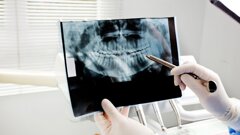
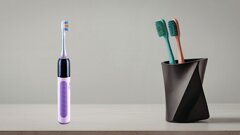

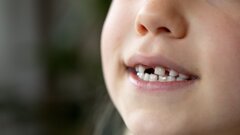
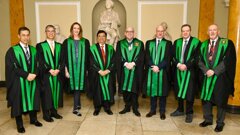

























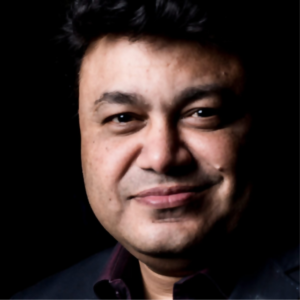



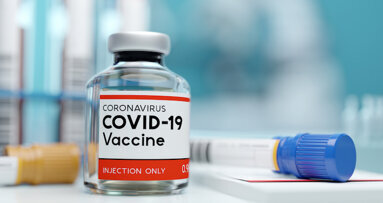
















To post a reply please login or register